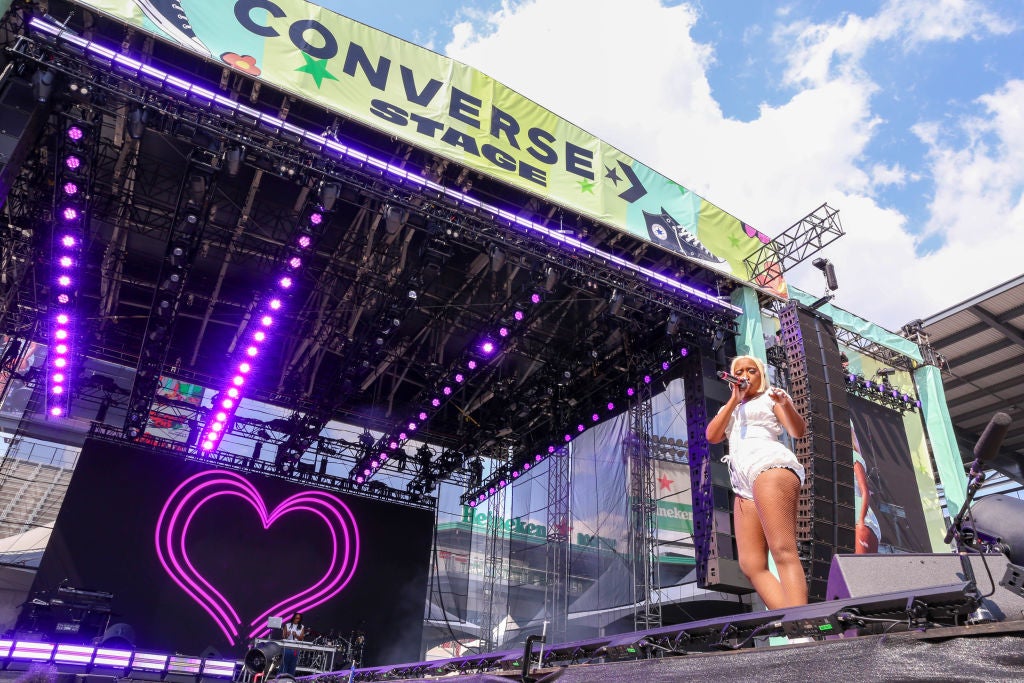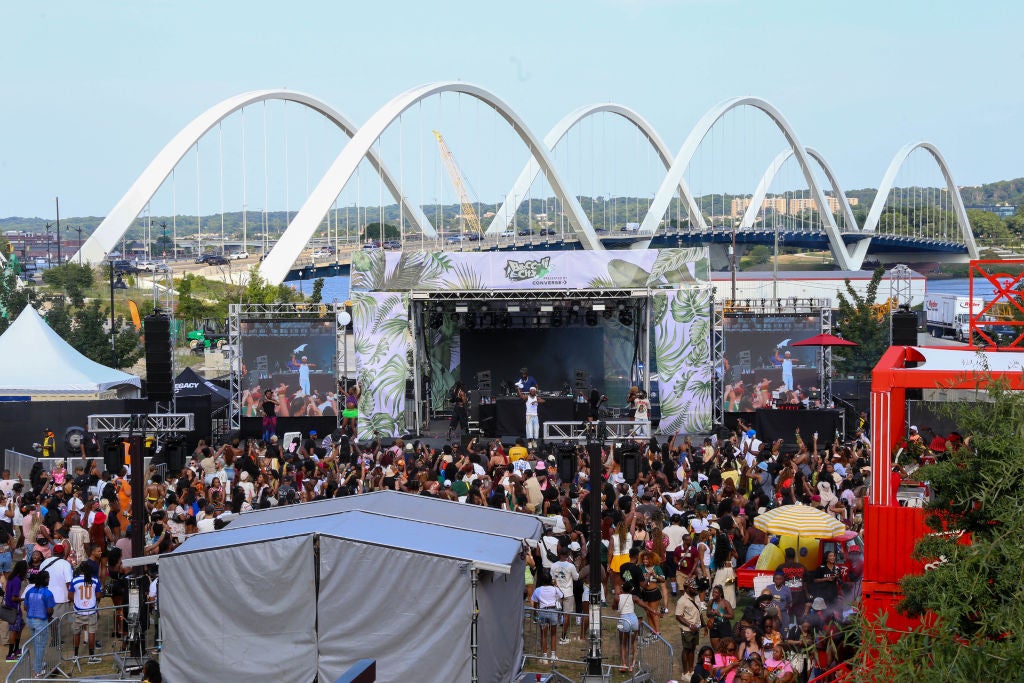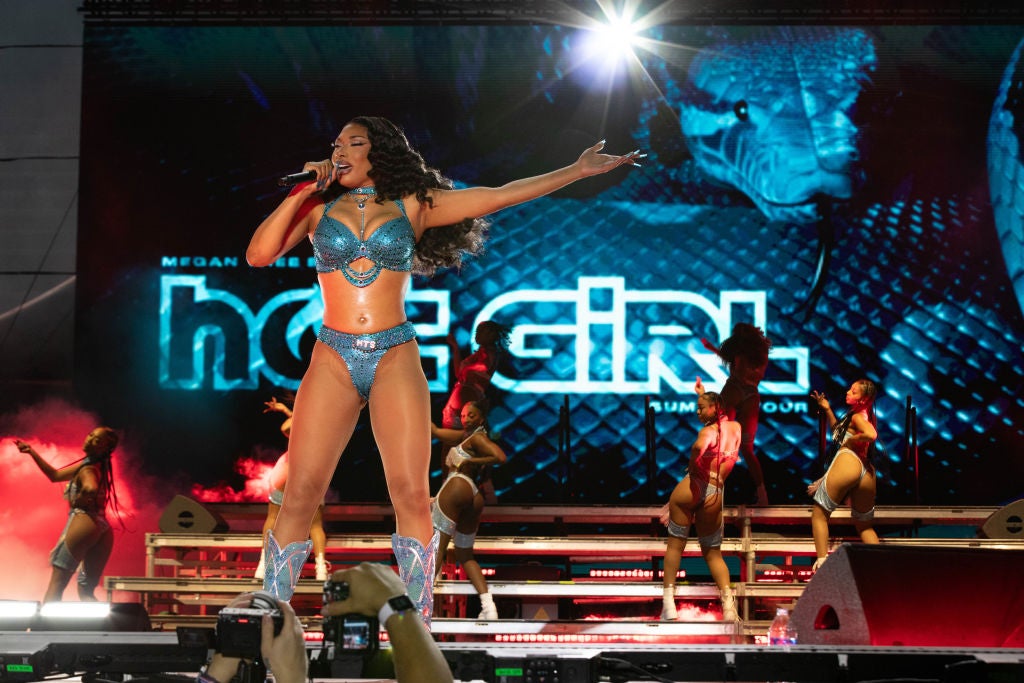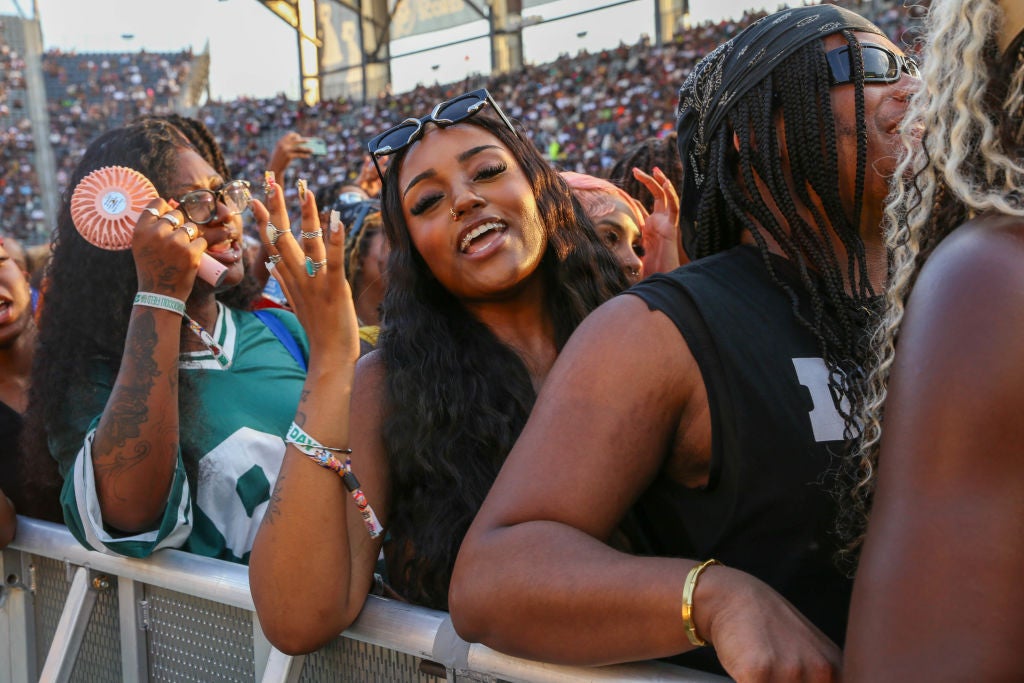For the past two summers (and many springs before that), Washington D.C. has transformed into a vibrant hub of culture, music, and community empowerment, all thanks to the Broccoli City Festival. What began as a modest block party in 2010 has blossomed into one of the nation’s most anticipated cultural events, drawing tens of thousands of people to the nation’s capital.
But Broccoli City is more than just a music festival—it’s a movement that encapsulates the power of community, sustainability, and Black excellence, all while driving significant economic impact in Washington D.C.
The festival’s journey from the grounds of RFK Stadium to its new home at Audi Field is a testament to just that: growth and evolution. For years, RFK Stadium was the heartbeat of the festival, offering a sprawling space where music, art, and activism converged. However, as the festival grew in popularity and scale, it became clear that a new venue was needed—one that could accommodate its expanding audience and vision.
In 2024, the festival made the move to Audi Field, a state-of-the-art venue nestled in the vibrant Navy Yard neighborhood. The decision to relocate wasn’t just about logistics; it was a bold statement of the festival’s future direction. Audi Field, with its modern amenities and intimate setting, allows for a more immersive experience. Here, festival-goers can connect more deeply with the performances, the art, and, most importantly, with each other.

The move also symbolizes a commitment to the Southeast D.C. community, a historically Black area that has seen rapid development in recent years. By hosting the festival in this neighborhood, Broccoli City ensures that the economic benefits of the event—hotel bookings, restaurant revenues, and retail sales—are felt in the local community.
To truly understand the impact of Broccoli City, one must look beyond the surface-level statistics. Yes, the festival generates over $6.5 million in economic activity across Washington D.C. during its weekend run, but these figures only tell part of the story. The real impact lies in the lives changed, the businesses supported, and the sense of community that is strengthened year after year.
Take, for example, the festival’s vendor marketplace. Over the past three years, this marketplace has become the largest annual event for small businesses in D.C., with more than 285 vendors participating and generating millions in sales. For many of these small businesses, particularly those that are Black-owned, the festival represents a crucial opportunity to reach new customers and increase their visibility. This marketplace is more than just a place to shop—it’s a celebration of Black entrepreneurship and creativity, where dreams are not only realized but amplified.
The economic ripple effect of the festival extends to the city’s hospitality industry as well. Over the festival weekend, local hotels see a significant uptick in bookings, with many reporting full occupancy. Restaurants and bars are buzzing with activity, as festival-goers explore the city’s culinary offerings. Even local transportation services, from Uber drivers to public transit, benefit from the influx of visitors.

But the impact of Broccoli City is not limited to businesses. The festival also plays a vital role in job creation, with over 1,500 jobs generated each year in roles ranging from security and bartending to production support and site operations. These jobs provide vital income to local residents and offer a stepping stone into the broader entertainment industry.
At the heart of Broccoli City’s mission is a deep commitment to sustainability. From its inception, the festival has championed eco-friendly practices, setting a powerful example for other large-scale events. The festival’s green initiatives are woven into every aspect of its operations, from waste management to energy use.
One of the most notable aspects of the festival’s sustainability efforts is its partnership with local green businesses. These partnerships not only reduce the festival’s environmental footprint but also support the city’s growing green economy. For instance, the festival’s recycling and composting programs have significantly reduced the amount of waste sent to landfills, while its emphasis on reusable materials has minimized the use of single-use plastics.
These initiatives are more than just good PR—they reflect the festival’s belief that entertainment and environmental responsibility can go hand in hand. By promoting sustainability, Broccoli City is not only preserving the planet for future generations but also educating festival-goers on the importance of living green.
While the economic and environmental impacts of Broccoli City are significant, the festival’s true legacy lies in its celebration of Black culture and creativity. Every year, the festival serves as a platform for some of the biggest names in music, from Grammy-winning artists like Megan Thee Stallion and Gunna to local D.C. legends. But it’s not just about the headliners—Broccoli City is also a stage for emerging artists and creatives who represent the future of Black culture.

The festival’s commitment to Black excellence is evident in every aspect of its programming. For instance, the 2024 festival featured activations from Black-owned brands like Sienna Naturals and Viarae Prosecco, both of which are led by the multi-talented Issa Rae. These activations were more than just brand sponsorships—they were interactive experiences that engaged festival-goers in a celebration of Black entrepreneurship and creativity.
The festival’s impact on the local arts community is equally profound. Over the years, Broccoli City has invested over $500,000 in local D.C. artists, commissioning them to create murals, installations, and other works that capture the spirit of the festival. These artworks not only beautify the festival grounds but also leave a lasting legacy in the city, turning public spaces into vibrant canvases that reflect the richness of Black culture.
Beyond the festival weekend, Broccoli City’s influence extends into the community through its educational and employment initiatives. The festival’s partnership with the D.C. Department of Employment Services has led to the creation of a specialized ambassador program, offering local residents the opportunity to work in production, operations, and marketing during the festival. This program is more than just a job opportunity—it’s a gateway into the entertainment industry, providing participants with the skills and experience needed to pursue long-term careers.

Similarly, the festival’s collaboration with the Duke Ellington School of the Arts offers students hands-on experience in stage production, lighting, and technical design. These programs not only prepare the next generation of entertainment professionals but also ensure that the benefits of the festival extend to the broader community.
At its core, Broccoli City Festival is about more than just entertainment—it’s about community. It’s about creating a space where people can come together to celebrate their culture, support local businesses, and learn about sustainability. It’s about building bridges between different parts of the city, ensuring that the economic benefits of the festival are felt in every corner of D.C.
As the festival continues to grow, so too does its impact. What started as a passion project has become a cornerstone of Washington D.C.’s cultural landscape, a beacon of Black excellence, and a driver of economic and social change. Broccoli City is not just a festival; it’s a movement that embodies the values of community, sustainability, and empowerment.







